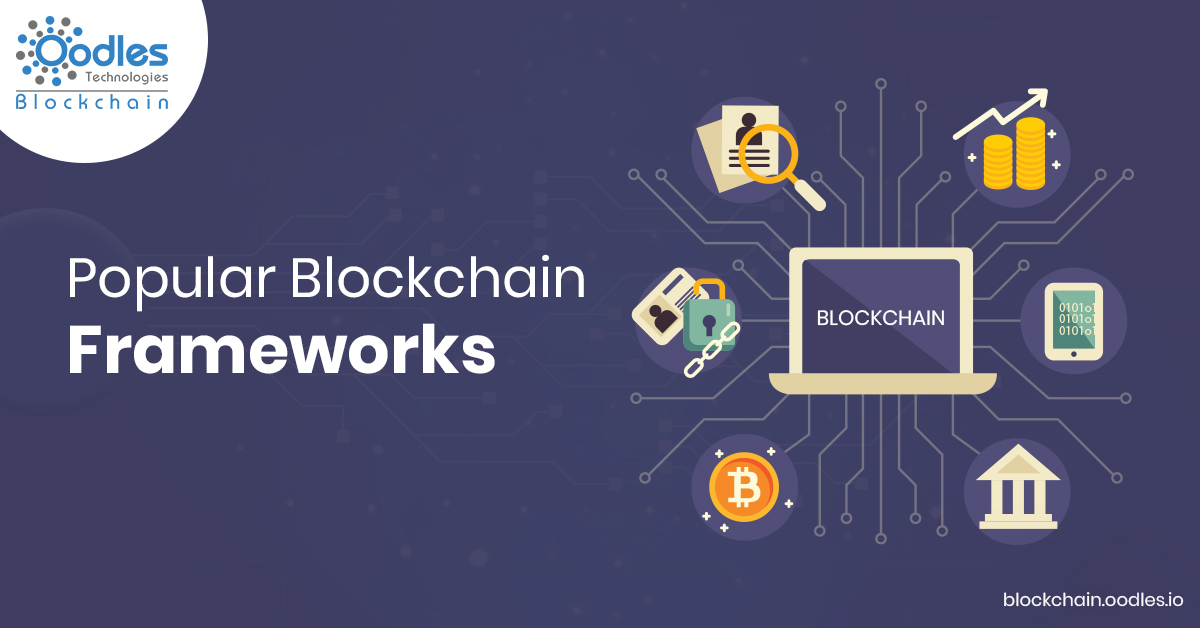-
If you're thinking of developing enterprise blockchain applications or want to leverage the power of Blockchain to disrupt the world with your innovative idea, you will need one of the popular blockchain development platforms to ensure success.
Here's a rundown of some of the best blockchain development platforms that we use to develop your blockchain solutions.
Top Blockchain Development Platforms that Oodles Technologies Uses
We have an in-house team of skilled blockchain developers that relentlessly work on the latest, groundbreaking technologies. They aim for bringing you the best blockchain development solutions for your specific business endeavors. Subsequently, it allows them to offer best-in-class development services for all prominent operations in the Blockchain industry.
Here's a short preview of the blockchain Development Platforms and technologies we leverage to bring the best on the table.
BigchainDB
BigchainDB, an immutable, decentralized data storage software, works like a ledger having characteristics similar to Blockchain. By utilizing query functionality and built-in asset support, BigchainDB provides low latency and high throughput.
Benefits of Using BigchainDB for business:-
Decentralization:
With BigchainDB, there's no need for an intermediary and third-parties. There's no single point of failure. You can use it for getting a P2P network that has maximum transparency. Each node can have a permanent copy of the ledger.
Query Support:
BigchainDb uses powerful query functionality that allows running any MongoDB query, such as assets, metadata, and transactions. Maintained by MongoDB, it's also excellent in reducing latency and speeding up the consensus process.
Customization:
With it, you can have customized private or permissioned blockchain network equipped with features like transparency, immutability, and scalability. Not only this but it also allows to set permissions at transactions level, therefore, enabling managed distribution of responsibility and tasks.
Hyperledger
Hyperledger, an open-source project, is famous for offering cross-industry blockchain technologies. Maintained by the Linux Foundation, it could become the future of decentralized blockchain development. Hyperledger Project bolsters DLTs (distributed ledger technologies) and allows us to develop enterprise-grade permissioned, public networks.
Benefits of Hyperledger:-
Scalability:
Hyperledger brings scalable software solutions that involve minimum complexity. It makes the applications well-adaptable to any tweaks in the consensus method or ledger.
Security:
Developing web and mobile applications using Hyperledger frameworks make the highly secure as they get backed using Cryptography.
Ethereum
Ethereum is a decentralized blockchain platform that incorporates a Smart Contract functionality. It enables us to create avant-grade DApps with no third-party interference.
Key features of Ethereum:-
Smart Contracts:
Ethereum allows running Smart Contracts on top of it. A Smart Contract is a self-executable computer protocol that's used to enforce the negotiation of pre-defined terms of an agreement between two or more exchanging parties.
DApps:
Ethereum is mainly famous for letting developers to create Smart Contracts and Decentralized apps. A Dapp uses blockchain technology and issues a crypto coin to incentivize users for any purchase or other transactions.
Removes Intermediaries:
Apps developed using Ethereum blockchain are referred to as DApps. Such apps don't require a central system or intermediary to run smoothly. Entities can use DApps to cut down on the development costs and to bring transparency within the network.
Multichain
Multichain can be used to establish Private Blockchains to use within an organization for enabling frictionless financial transactions. Multichain is capable of processing as many as 1,000 transactions/second. It also offers a simple API and command line interface to let developers set up and preserve the chain.
Advantages of Multichain:-
Unlimited Assets:
With Multichain, you get support for multi-party transactions and multi-asset.
Data Streams:
Multichain offers required support for data encryption, data sharing, and timestamping. As well as, allows to create unconstrained data streams and time series coupled with multiple values.
Speed and Efficiency:
Enables developers for expedited development process so that its users can create new blockchains to operate efficiently within a network.

Our Offices
INDIA
Emaar Digital Greens, Sector 61,
Gurugram, Haryana
122011.
Welldone Tech Park,
Sector 48, Sohna road,
Gurugram, Haryana
122018.













